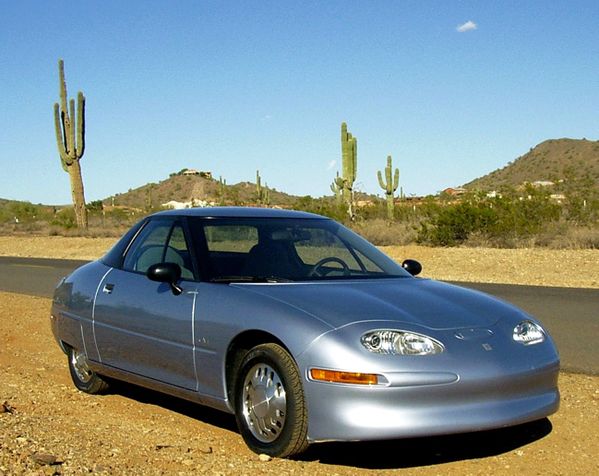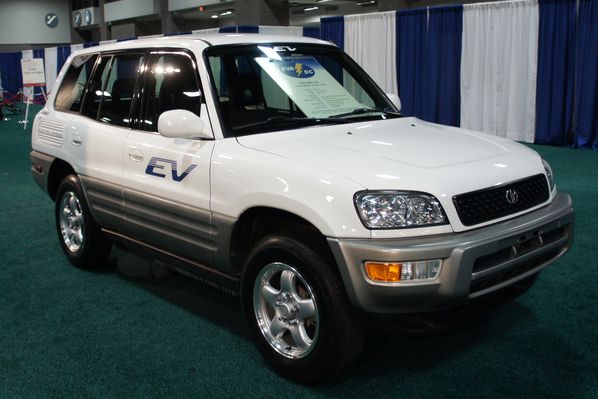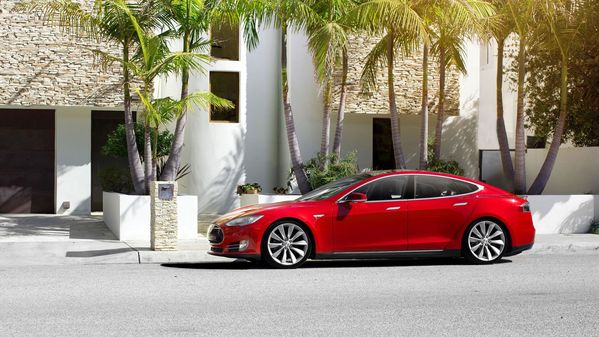Will greed kill the electric vehicles once again? Back to the history of EV with an exclusive interview of John E. Waters, the former battery-pack design Leader of the GM EV1, for BLOGaL
-
About EV … and leadership!
Will history repeat itself? BLOGaL asked John E. Waters, the former battery-pack design Leader of the General Motors EV1 a very simple question:
- on your point of view, why did the launch of the EV market fail 15 years ago and why should it be a success now ?

The launch of the EV market almost 20 years ago was, in all measurable areas, highly successful. Whether you measure technology innovation (IP), marketing effectiveness (multiple awards and celebrity endorsements), infrastructure and support (states of CA and AZ initial markets), or consumer capture (2-year waiting list on product), the launch of General Motors EV1 was, in my opinion, historical by all measures. As the battery pack engineer on the program, I can assure (with 100% confidence) the performance of the battery and the entire vehicle met or exceeded our highly researched performance targets and left no customer complaining or longing for more performance, or range (we always had a battery technology solution with 100 mile, 200 mile, and 300 mile options being developed, but interestingly, a majority of 100 mile range customers turned down battery pack options with greater range capability when they were made available).
The EV1 was a revolutionary product and "surprised and delighted" everyone who experienced it (similar to experiencing a Tesla Model S, which is currently exceeding sales projections). The emotional drama of "killing" this product and the entire EV program has been captured fairly well in the documentary 'Who Killed The Electric Car?".

photo : RightBrainPhotography (Rick Rowen)
So, why were the electric vehicle programs of GM, Honda, Nissan, and Toyota not "successful" in the decade of the 1990's? In my opinion, the answer was greed. Due to a change in leadership at the helm of GM (former CEO, Bob Stempel), a "change agent" CEO (Jack Smith) was brought in to resolve financial challenges associated with a UAW strike (1992). Unfortunately for GM and the entire automotive industry, Jack Smith was a finance expert and knew very little about automotive technology, innovation, market capture, sustainability, pollution, acceleration, and sheer product genius.
It was absolute greed that motivated the executive leadership at GM - referred to as "short term shareholder profits" - and this motivated a "winding down" of all advanced vehicle technology development and created the strategy to acquire the Hummer product line and sell $40,000+ (USD) sport utility vehicles with $20,000+ (USD) profit margins per vehicle, regardless of the fuel economy (less than 15 MPG), performance, styling, sustainability, or customer delight. But, why not? After all, gasoline is "free" and who really cares about air pollution (sic!)? Greed can blind the eyes of leadership, even with the best intentions for shareholders.

photo : Sfoskett
In tandem with the massive SUV product strategy, GM produced propaganda indicating the EV1 was a disappointment to consumers based on the limited range of the vehicle and that "sales could not be legislated" in CA. As the "battery guy" for the EV1, I can boldly declare that this statement and similar ones were just not true. In fact, unknown to the public, a colleague and I placed a motorcycle engine "generator" in the trunk of an EV1 (i.e., Chevy Volt) in 1996 to illustrate the platform efficiency of the EV1 and we called it the "Infinite EV" (the demonstration car could deliver over 800 miles of range on a single tank of gasoline and possessed the lowest coefficient of drag ever produced in a production vehicle, 0.19 Cd). We strongly pushed the concept at GM to refute the internal and external propaganda but it fell on "deaf ears" of leadership. And so did the two-year waiting list of customers demanding the EV1. Facts: the demise of the EV1 was not based on technology limitations or customer demand.
With the removal of Bob Stempel as CEO (he was actually an engineer who had experience in making automotive products) there was no longer a global leadership vision for GM to become the world's leader in advanced automotive technology and change the paradigm of the automobile (EV's do not require spark plugs, oil changes, and filters and this made GM's internal parts organization fundamentally suffocate advance technology development and electric vehicles not requiring their 100 year old products; alas, more greed). Once GM convinced the California legislature (CARB) that electric vehicles "were not ready" and that fuel cell technology was the "silver bullet" of the future (inside joke: "fuel cells will be ready in about 10 years" is the sentiment most insiders have had for over 20 years now), then the entire EV industry folded with the exception of Toyota's Prius vehicle (another historical innovation, EV-Hybrid, that has arguably contributed to making Toyota the most successful auto company in history; btw, Toyota leadership observed and drove an EV "hybrid" in my building in 1992, hmmm).
A lack of leadership and short-term profits
The demise of the EV market 15 years ago is a complex answer but it was most certainly not due to technology, markets, infrastructures, or customer adoption. In my opinion, the EV demise was simply due to a lack of leadership and short-term profits (i.e., greed). I do not think Toyota would say the "EV" industry turned out to be a failure for them as they have continued with amazing success in their commitment to advance technology and sustainability (btw some of their Electric RAV-4's are still driving on the streets of USA!).

photo : Mariordo - Mario Roberto Durán Ortiz
With the leadership of Tesla, and their paradigm-shifting products now being snatched up by consumers (identical to the EV1 15 years ago), the proper dynamics are back in the global marketplace for endurance. I believe it has been the gutsy, risky, and bold leadership of CEO Elon Musk that is making the largest difference in the industry as the planet needs clear and bold leadership to take on the entrenched quasi-leadership of the past.
It's quite simple really: make profitable products that are good for people and the society in which we live (Jesus said it this way, "Love your neighbor as yourself"). I am confident we will be driving 100% efficient vehicles in heaven and having a 90%+ efficient Model S on earth is a pretty good warm-up for eternity!

photo : TESLA
Mr. John E. Waters worked for General Motors and led numerous sustainability projects, including the invention and production of the battery pack system for GM’s first electric vehicle and subsequent electric vehicle (i.e. GM EV1 and Electric S-10). He led the advanced energy storage team and provided battery pack solutions for multiple light and heavy-duty platforms.
By Alexis Duflos
Founder CEO, BLOGaL





/image%2F1221975%2F20210527%2Fob_33c78f_king-hubbert-curve.jpg)
/image%2F1221975%2F20181130%2Fob_7f4969_cobalt.jpg)
/image%2F1221975%2F20150407%2Fob_6dae7e_2015-02-20-11-11-23.jpg)
/image%2F1221975%2F20150410%2Fob_4626d8_arbre.jpg)